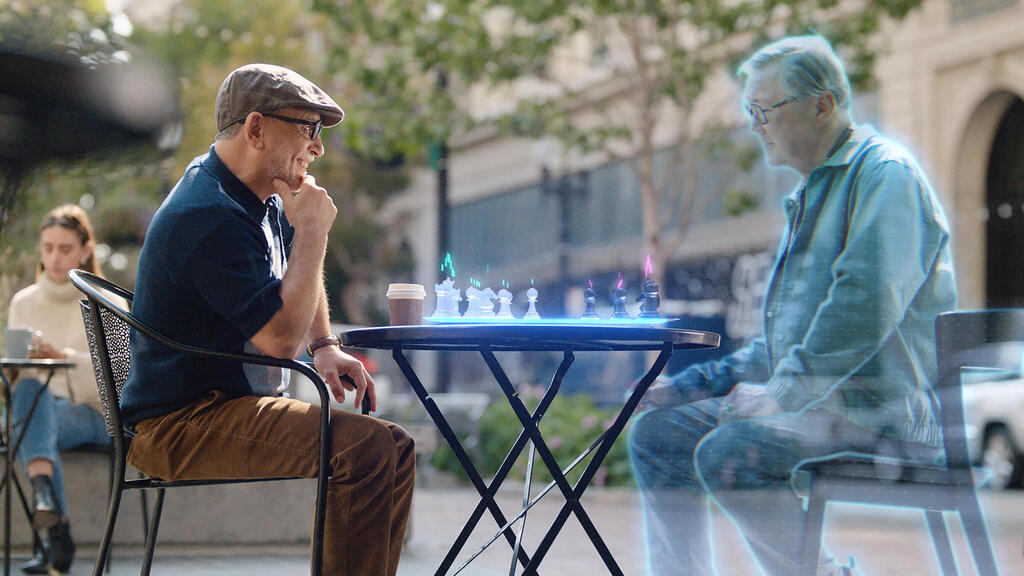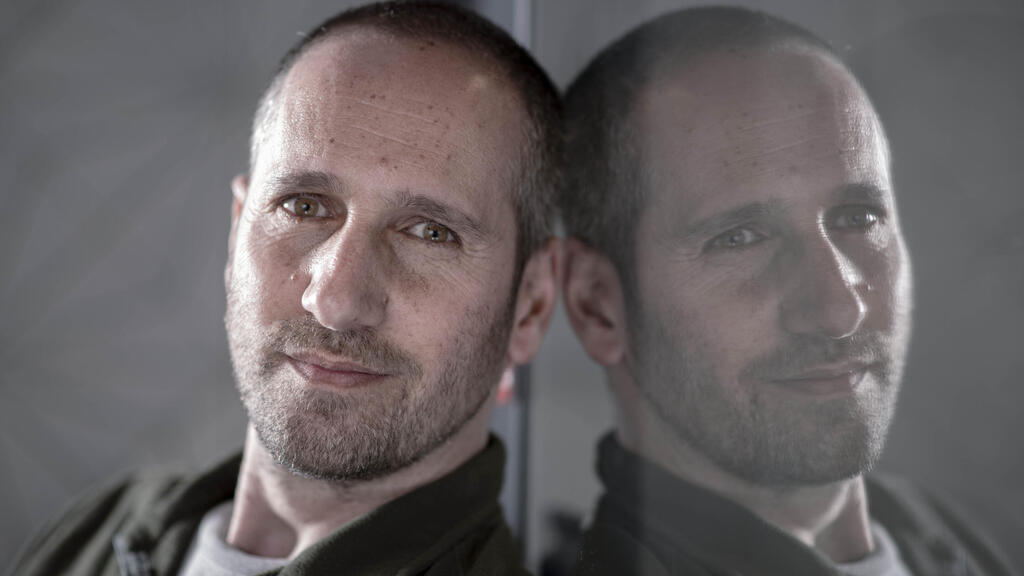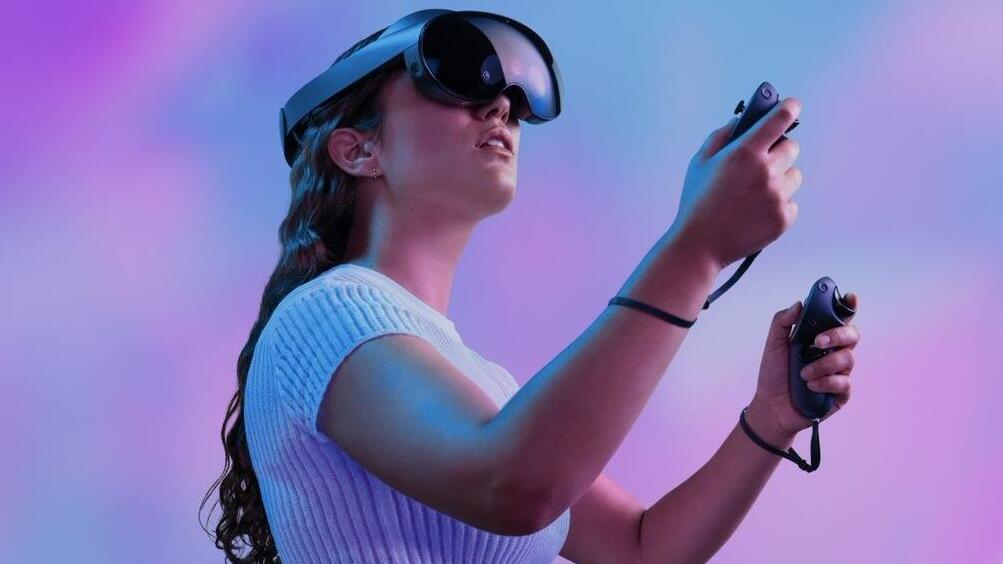The interview we scheduled with Israeli Meta executive was postponed due to Mark Zuckerberg's dramatic announcement that 11,000 company employees were going to be fired.
It hasn't been the best of years for Meta, formerly known as Facebook, to put it mildly. Zuckerberg's insistence on focusing efforts on the virtual reality world we're supposed to be living in soon, dubbed the Metaverse, seems like an unsafe bet at the moment, especially in light of the tens of billions of dollars invested into the project.
Facebook itself was supposed to be the backup in case the Metaverse dream doesn't fully materialize, but Zuckerberg wasn't counting on TikTok gaining the kind of popularity it did - causing Meta to lose on even more revenue. Meta's stock lost 65% of its worth since January, with no signs of the avalanche coming to a stop anytime soon.
Still, Zuckerberg isn't slowing down. He's putting all his chips into the virtual Metaverse basket, with his "reality labs" division continuing to dump massive amounts of money on it. This division has offices around the world, one of which is Israel.
Now, for the first time, Meta is allowing one of it workers to be interviewed. Meet Dadi Gadot, manager of the Reality Labs division in Tel Aviv.
"Before cars were invented, no horse rider said anything about a motorized carriage," he says. "They spoke of a more efficient, less demanding horse. When it comes to the Metaverse, there's a vision at play and we're focused on the Tech to bring it to life."
Gadot is a 38-year-old father of two, residing with his family in Tel Aviv. He served in the Air Force and up until today, still loves to make time for virtual flying simulators. He joined Meta two years ago and was one of the founders of Magic Leap, where he worked on designing the company's second generation VR set.
The software division Gadot now manages stretches from Western Europe to the United States. "While we mostly focus on software, we work with closely with hardware as well, on things like sensors and processors."
What is Metaverse, anyway?
"It's a 3D internet environment, as opposed to our computers and phones, which is 2D. It means that if someone joins in on a conversation virtually, it'll look and feel like he's right next to us, even if he's on the other side of the world. Even if I'm here and you're in San Francisco, you can invite me to a round of golf. We call it "Presence Platform."
"Meta is already selling those long distance workout routines for its VR headset called Quest. You can workout from home even if your instructor is in the Philippines, because it feels like he's right next to you. It's all done through wearables."
Are you referring to those clumsy headsets that block out the eyes?
"No. Our vision speaks of tiny, thin glasses, so you won't need anything on your desk other than space to place your hands. Since they're transparent, it means you'll be able to interact both with people next to you and those thousands of miles away, and it'll feel exactly the same. That's the future."
So you're saying we should forget about VR headsets because it's all about thin AR (augmented reality) glasses.
"I'm not saying you should forget, since VR headsets do and will have value, even after our final vision materializes. They're an additional product you can use. They have plenty of users and more applications are being developed for them. In Herzliya, for example, there's a company that bought its workers all VR headsets and they make it work."
What's the difference between AR and VR?
"VR is simply virtual reality, like the Quest headsets we already have. Through them you can see a virtual world in a 360-degree field-of-view."
Mark Zuckerberg presents the Metaverse vision
"MR, which is mixed reality, are headsets that have cameras and sensors on them that interpret the world around you as well as your facial expressions.
"AR is augmented reality. Those headsets are transparent and combine the physical world with virtual elements.
"The Quest headsets are VR and our Quest Pro headsets are MR (mixed reality). Our vision, as I've said, is AR headsets where you can see the real world right along with virtual elements in the same space. In our software group we actually work on all three."
Give me a specific challenge you're dealing with.
"We're working on the system being able to identify and calculate objects in the virtual space, so if for example, a virtual monster comes in the room, her ability to maneuver would take those objects into account.
"We're also working on avatars. We track facial expressions and alterations like blinking, speaking, smiling etc. 3D avatars will look exactly like you. It'll work on all platforms, including your phone. Another challenge is expanding the functionality of the kind of controllers you see on gaming consoles."
Honest, though. Are you focusing on a need that doesn't exist? I get along fine without playing virtual golf with my Hawaiian friend.
"New technologies always face those kinds of questions. Smartphones didn't seem necessary when we had computers. We need different tools for different applications all the time. We're trying to connect people in every way we can."
So we could use AR goggles all day for navigation and stuff like that, and in the evening, use our VR headsets to disengage from the physical world.
"If you'd like to make a presentation in peace, you could use VR headsets to work on that while sitting on a beach of a deserted island."
Isn't it just a fantasy? You seem far away from that utopian vision. Zuckerberg spoke about endless challenges in development, and none of the models he presented came anywhere near the AR goggles you speak of.
"The tech to enable all this has been around for eight years. We're working on personalizing the experience for people's homes, not just organizations. That distinguishes us from others in the market."
But Google already tried Google Glass and Microsoft already tried Hollow Lens. It didn't work. It's too clumsy and expensive, and it's not consumer friendly either.
"Remember the first cellular phones? Those Motorolas looked like a suitcase. From there it went into our cars and from there to our pockets. It's all about perfecting miniaturization over time. We're doing the same. Eventually it'll work as intended."
What about physical limitations? Our phones have cameras that could never compete with high-end DSLRs because there's simply no room for a large quality lens.
"There are no physical limitations for out five-year goal. I know that for a fact. There are challenges, to be sure. Miniaturizing with losing energy or overheating. Stuff like that. The AR goggles we want will be a major breakthrough for humanity. We already have a prototype called ARIA."
In VR, location matters. Aren't you annulling the physical dimension?
"No. The point of what we're doing is to have the virtual correspond with the physical. It's about identifying objects and how they behave from a physics standpoint. We can already do that within the context of a room. Soon it's a house, mansion, city and eventually the whole world."
Meaning?
"Let's say Habima Theatre is putting on a virtual play. You'll be able to see it on the AR goggles as if it's right in front of you. Virtual characters running around your living room."
And AR goggles will also let me know the rent for an apartment I worked by or the menu of a restaurant I breezed through.
"It's all about layering information and modeling the real world. Like Waze and Google Maps model the real world in 2D with roads, we're working on modeling the world in 3D, and adding layers of information on top."
How do I interact with the goggles? With the phone I use a finger, for example.
"The biggest challenge is coming up with tech that integrates with human physicality, but there are options - recognizing the point you focus on with your pupils, moving virtual objects with your fingers. There are bracelets that identify the signals our mind send to our extremities."
So I get how the Metaverse connects with gaming and workouts, but what about things like Microsoft Office? How do I engage with those?
"We're aiming for a 3D office, not confined by space. Your laptop and phone have a screen limitation. With the goggles I'll have as many screens as I want. The space around me is my playground. Along with wearable tech and 3D tech, you'll be able to engage everything in various ways."
You're assuming the goggles will be comfortable enough to wear all the time. Without it, Metaverse isn't going to happen.
"It's a mission, not an assumption. If before smartphones I'd have told you you would be spending a sizable chunk of your day staring into a tiny screen, you would laugh at me, but that's what happened. We're trying to make the value of wearing these goggles so high, that it will be worth wearing them."
So why is there so much mistrust in Meta? Even employees and investors are speaking against some of Zuckerberg's decisions.
"We've gotten use to a lot of innovations coming quickly, but some revolutions take time. Especially with hardware. The idea of Metaverse has been around for 30 years. We've come accustomed to a rapid pace of inventions coming out, but our plans are fairly aggressive and will not take too long."
But someone needs to foot the bill. Zuckerberg has been pouring money into your Reality Labs, with not a single dollar in return so far.
"Our sales data gives us confidence. Latest projections say that by 2031 Metaverse will comprise 2.8% of global GDP. That's trillions a year, and the lion's share will go to the company that comes out with the product that is ripe for release, not a half-baked attempt."
Where is Israel in all of this adventure?
"Israel has the three main components required for this sort of companies. Content experts that know how to build apps, engineers that can plan chips and sensors and people who can do both. We're putting a lot of money working with Israeli startups on the Metaverse. We're priming Israel to play a major Metaverse role right from the get go, and it's happening."






